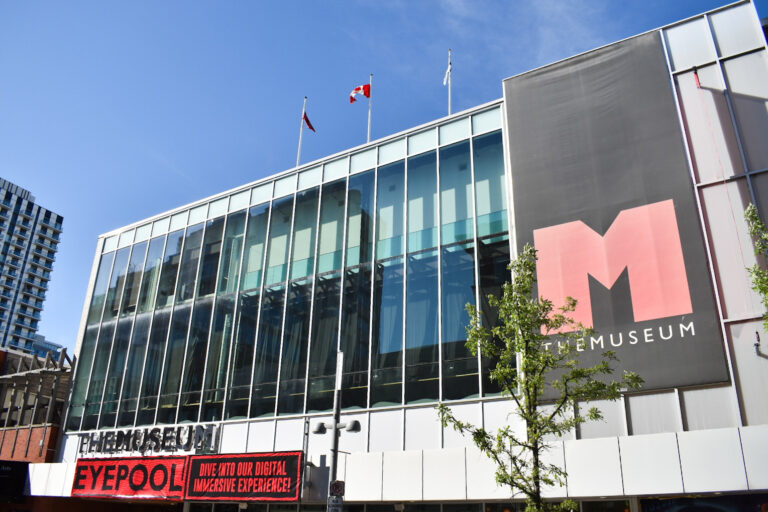In early 2023, Kitchener had three Key Cultural Institutions—institutions recognized by Waterloo Region as “unique and intrinsic to the cultural infrastructure of the greater region”. These included the Kitchener Waterloo Symphony, Kitchener Waterloo Art Gallery and THEMUSEUM.
However, the Kitchener Waterloo Symphony filed for bankruptcy last fall.
Now, it appears one of Kitchener’s remaining two may be on the brink of closing as well. THEMUSEUM contacted Kitchener Council requesting $300,000 in “emergency operating supports” to help secure its future. During the May 13, 2024, Kitchener Council meeting, staff outlined both the importance of THEMUSEUM as well as the impact on the community when we see the demise of arts institutions.
The requested interim funding would allow THEMUSEUM to continue operating until this Fall.
“This window would allow THEMUSEUM’s board time to explore substantial changes to their operating model to achieve sustainability, while honouring existing commitments for summer camps and event rentals,” the staff report stated.
Staff recommended that funding be provided under four conditions: protect community interests by honouring existing commitments, create a sustainable operating model, limit discretionary spending and undertake an orderly shutdown if needed.
Staff suggest that steps towards a long-term solution could include a reduction in staffing costs, reducing the operating footprint and utilizing a hybrid delivery model to reduce building occupancy expenses.
David Marskell, CEO of THEMUSEUM, cautioned about the impact of potential cuts.
“We can’t cut our way to sustainability. The more we cut from our programming, the more attendance we will lose…it will just shrink us into a place no one wants us to be,” Marskell said.
“As observed during the sudden closure of the KW Symphony, the sudden closure of any cultural institution prevents the community from rallying behind the organization,” the staff report stated.
At that council meeting, Marskell was joined by John Durdan, a member of THEMUSEUM board, and they provided a short presentation outlining the need for the funding and responded to over an hour of questions from Kitchener Council. Council concerns included the suddenness of this threat of closure, why a more sustainable model had not been implemented earlier and whether the $300,000 funding request would likely result in keeping THEMUSEUM open long term.
Marskell responded to Council’s concerns about THEMUSEUM’s existing financial model, stating that THEMUSEUM, originally the Children’s Museum,
“[THEMUSEUM] was opened with a flawed financial formula, very little money. This was coming from grants and so on, and we inherited that. And we’ve been saddled with this underfunding ever since,” he said.
A 2019 review of THEMUSEUM’s finances noted that it has “consistently incurred large operating deficits since 2009,” with deficits ranging from $260,000 to $550,000 in any given year. It also claimed that staffing (in numbers and cost) is nearly twice that of similar organizations, while their fundraising falls below average. During that review, THEMUSEUM’s “only plan for its long-term sustainability was to ask municipalities for an extra $400,000 a year in operating funds.”
According to the Canada Revenue Agency, for the reporting period ending on June 30, 2023, THEMUSEUM’s revenue was $3,435,011 and expenses were $4,483,584, a deficit of $1,048,573. Revenue came largely from ‘other revenue’—57.70 per cent—and government funding—28.52 per cent. Donations accounted for $279,736, or 8.15 per cent of the budget.
The top three expenses were charitable programs (72.45 per cent), management and administration (14.49 per cent) and fundraising (9.66 per cent). Expenses do not include rent since the city of Kitchener owns the building (10 King St. W.) and leases it for $1—an in-kind grant worth just over $125,000.
Kitchener Mayor Berry Vrbanovic noted the key role THEMUSEUM plays in tourism, with 40 per cent of THEMUSEUM’s attendees coming from outside of the region.
Last year, THEMUSEUM welcomed about 80,000 visitors. Prior to the pandemic, average attendance was around 100,000 people.
“There’s a fundamental funding flaw within our own facilities. Our [2023] investment in the Centre in the Square was over $2.6 million,” Vrbanovic said.
With just under 110,000 visitors last year, that works out to approximately $24 per visitor. THEMUSEUM receives less than $5 per visitor. Vrbanovic concluded that while investment in the Centre in the Square is important and needed, so too is it for THEMUSEUM and suggests that if the city had been funding THEMUSEUM at a similar rate, perhaps we wouldn’t be in this situation at all.
While there were numerous questions and concerns from Kitchener Council about providing the requested $300,000 interim funding, it seems fear of THEMUSEUM shutting down without such funding ruled the day. Scott Davey, councillor of Ward 1, put forth an amendment where, prior to June 24, 2024, THEMUSEUM would ask the Region of Waterloo Council for half of the requested funds ($150,000). That passed with everyone in support except for Stephanie Stretch, councillor of Ward 10.
Davey’s amendment also asked for a deferral of one part of the motion that would essentially withhold a decision on the final $100,000 of interim funding until after the Region had been asked to provide $150,000 of the requested funds. That failed in a six-to-five vote with councillors Owodunni, Michaud, Chapman, Johnston, Stretch and Vrbanovic opposed.
The main motion as amended, which sees Kitchener providing $300,000 to THEMUSEUM, passed with everyone in favour except for Davey.
Davey’s amendment was brought forth over his concern about the lack of support for local art and culture from the other levels of government.
“Kitchener, having the smallest tax base, cannot afford to bridge these gaps on our own, especially given the homelessness and housing crises, and the general unaffordability residents are facing today,” Davey said.
City staff will now work with THEMUSEUM Board to create a new financial model, while still honouring its current commitments until this fall.
“We can’t lose this. There are two scenarios for downtown Kitchener, one with THEMUSEUM and one without. And I don’t think anybody wants to see that scenario with one without,” Marskell said.

